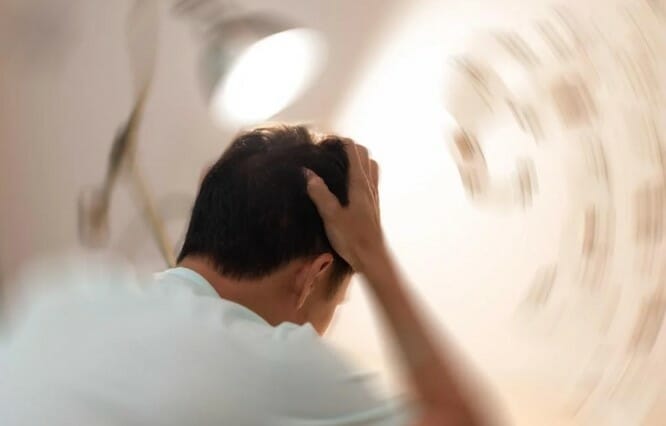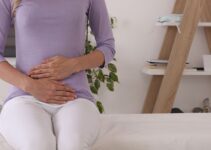Table of Contents
Do you start your day with a hot cup of coffee? If so, you’re not alone. In the US, over 60% of adults drink coffee every day. But what if that beloved morning ritual was actually making you dizzy? Believe it or not, drinking too much coffee can lead to dizziness and other symptoms like headaches and nausea.

Here we’ll take a look at why drinking coffee can sometimes cause dizziness, and what you can do to avoid it. So, keep on reading if you want to learn more about this common side effect of coffee consumption!
1. What Are the Possible Causes of Dizziness After Drinking Coffee?
There are a few different ways that coffee can lead to dizziness. First of all, coffee is a diuretic, which means that it increases how much urine your body produces. This can lead to dehydration, and dehydration is one of the most common causes of dizziness.
In addition, coffee also contains caffeine, which is a stimulant. For some people, caffeine can cause jitteriness, anxiety, and irritability. These symptoms can sometimes lead to dizziness.
Finally, coffee is acidic, and for some people, drinking an acidic beverage first thing in the morning can lead to an upset stomach. This can also cause dizziness.
2. How Much Coffee Is Too Much?
For most people, drinking one or two cups of coffee per day is perfectly safe and will not cause any adverse effects. However, everyone responds to caffeine differently, so it’s important to be aware of your limits.
If you find that you start to feel dizzy after drinking coffee, it’s probably a good idea to cut back on your intake. You might want to try switching to decaf coffee or only drinking coffee in the mornings.
It’s also important to be aware that many foods and drinks contain caffeine, so you may need to cut back on other caffeinated beverages like soda or energy drinks if you’re trying to avoid feeling dizzy.
3. How Can You Prevent Dizziness After Drinking Coffee?
There are a few different things you can do to prevent dizziness after drinking coffee. First of all, make sure you’re staying hydrated by drinking plenty of water throughout the day.
In addition, try to limit your intake of caffeine, and if you do drink caffeinated beverages, space them out throughout the day rather than drinking them all at once.
Finally, if you find that drinking coffee on an empty stomach makes you feel dizzy, try eating a light breakfast before you have your first cup of the day.
Following these simple tips, you can enjoy your coffee without having to worry about feeling dizzy!
4. What are Some Tips for Dealing with Dizziness After Drinking Coffee?
If you do start to feel dizzy after drinking coffee, there are a few things you can do to help lessen the symptoms. First of all, drink plenty of water to stay hydrated.
In addition, try lying down and closing your eyes for a few minutes. If you’re feeling nauseous, you can also try drinking a clear beverage like ginger ale or water.
Finally, if your symptoms are severe, you should contact a medical professional.
By following these tips, you can help minimize the effects of coffee-related dizziness and get back to your day as soon as possible!
5. When Should You See A Doctor About Dizziness After Drinking Coffee?
In most cases, dizziness after drinking coffee is not a cause for concern and will go away on its own. However, there are a few instances where you should see a doctor about your symptoms.
If you experience sudden or severe dizziness, shortness of breath, or chest pain, you should call 911 or go to the nearest emergency room. These symptoms could be signs of a more serious problem, so it’s important to get medical help right away.
Additionally, if you frequently experience dizziness after drinking coffee, it’s a good idea to talk to your doctor. They can help you rule out any underlying health conditions and recommend ways to prevent the symptoms in the future.
By seeing a doctor, you can get peace of mind and make sure that your coffee-related dizziness is nothing to worry about!
You may like to read this: Can Coffee Cause Hormonal Acne? – The Ultimate Guide
4 Reasons Why You Should Stop Drinking Coffee If You’re Feeling Dizzy
1. Caffeine Can Dehydrate You
One of the main reasons why coffee can cause dizziness is because it can lead to dehydration. When you drink coffee, the caffeine stimulates your body to lose water through increased urination.
If you’re not properly hydrated, you may start to feel lightheaded and dizzy. To prevent this, make sure you’re drinking plenty of water throughout the day, especially if you’re also drinking coffee.
In addition, try to limit your intake of other caffeinated beverages like soda or energy drinks, as these can also contribute to dehydration.
2. Caffeine Can Affect Your Blood Sugar Levels
Another reason why coffee can cause dizziness is that it can affect your blood sugar levels. When you drink coffee, the caffeine causes your body to release sugar into your bloodstream.
If you drink coffee on an empty stomach, this can lead to a sudden drop in blood sugar, which can cause lightheadedness and dizziness.
To prevent this, try eating a light breakfast before you have your first cup of coffee. This will help stabilize your blood sugar levels and prevent dizziness.
Read our: 10 Best Coffee Makers for Iced and Hot Coffee – Reviews 2026
3. Caffeine Can Increase Your Heart Rate
Caffeine can also cause dizziness by increasing your heart rate. When you drink coffee, the caffeine stimulates your heart to beat faster.
For some people, this can lead to palpitations and an irregular heartbeat, which can cause lightheadedness and dizziness. If you’re susceptible to this effect, it’s important to limit your intake of coffee.
In addition, if you have a history of heart problems, it’s best to avoid coffee altogether.
4. You May Be Sensitive to Caffeine
Finally, some people may simply be sensitive to caffeine and experience dizziness as a result. If you notice that you always feel dizzy after drinking coffee, it’s best to cut back on your intake or switch to decaf.
Everyone responds differently to caffeine, so it’s important to listen to your body and make sure you’re not consuming too much.
Conclusion
In conclusion, coffee can cause dizziness in some people. This is usually due to dehydration, low blood sugar levels, or sensitivity to caffeine. If you frequently experience dizziness after drinking coffee, it’s a good idea to see a doctor. They can help you rule out any underlying health conditions and recommend ways to prevent the symptoms in the future.
Related Posts:
10 Best Espresso Machines Under 100 | Reviewed in 2026
The 10 Best Coffee Makers with Hot Water Dispenser | Reviews of 2026
The 13 Best Espresso Machines Under 700 | Reviews 2026






